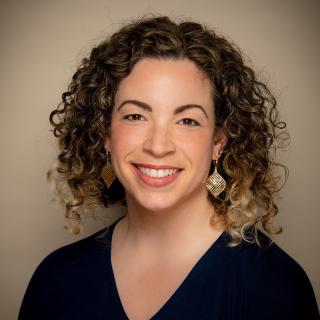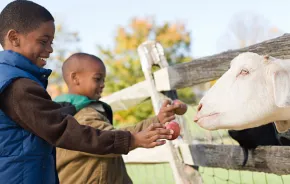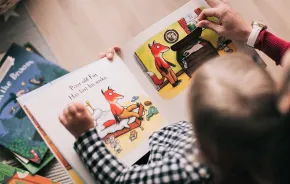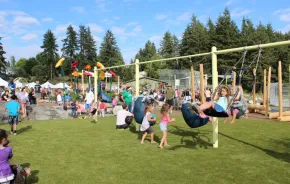 For many a family, it is holiday tradition to dress up in fancy, poufy outfits and head over to be awed by The Nutcracker, or to queue up to wait for a turn on a colorful carousel or Santa’s jolly knee.
For many a family, it is holiday tradition to dress up in fancy, poufy outfits and head over to be awed by The Nutcracker, or to queue up to wait for a turn on a colorful carousel or Santa’s jolly knee.
We’ve tried those rituals, and they are all very fun and nice. But this year it was time for a new tradition, one centered around the theme of “tradition” itself. A tradition that felt so right it will definitely now become a required part of my family’s holiday.
No sooner had the first notes of Village Theatre's Fiddler on the Roof sounded and I was practically already crying (I’m sure this was because I was either hormonal or Jewish, and I promise it probably won't happen to you). But the story of this beautifully performed Broadway musical classic is so tender and familiar that it will give you pause (OK, maybe get you a little verklempt) as it steeps you, like a long-simmered matzo ball, in the oldest kind of universal tale about family and customs, strife and love, old vs. new.
I knew from the get-go that it might be a challenge to get my two daughters, 5 and 7, to sit through the entire show, which runs almost three hours including intermission. Though we attended a Sunday matinee, they were still among the few children and the youngest in the audience.
 But I was resolved (perhaps not so unlike Tevye, the dairyman and father of five girls determined to hang onto his clan’s customs despite changing times) to introduce my kids as soon as possible to a live version of what basically amounts to their genetic and cultural history.
But I was resolved (perhaps not so unlike Tevye, the dairyman and father of five girls determined to hang onto his clan’s customs despite changing times) to introduce my kids as soon as possible to a live version of what basically amounts to their genetic and cultural history.
None of us were disappointed, including my husband — who shares not a spec of genetic history with “Fiddler on the Roof” and who braved the stormiest afternoon this fall yet and a worse storm of my Golde-worthy heckling to get us to Issaquah in the nick of time for the show to begin, as harried and soaked as a bunch of weary shtetl folk.
And what better place to be, in from the pounding, cold Northwest rain, than watching the circle of melodic villagers inside the warmly drawn set of Anatevka, among the klezmer and Russian folk music of the Sheldon Harnick-Jerry Bock score, swaying along to such classics as “Sunrise, Sunset,” “If I Were a Rich Man” and “Wonder of Wonders.”
Village Theatre has done a magnificent job with strong casting (including Eric Polani Jensen, who is rich and soulful and funny as Tevye, and Bobbi Kotula, endearing as the pushy Golde).
The heart of the story, rooted in the tales of Sholem Aleichem and book by Joseph Stein, is one that I think children as young as 5 or 6 can begin to grasp, with help from parents (who are capable of discussing the cultural takeaways without getting slobbery-sentimental as I am wont to do).
 My girls in particular were fascinated with the lot of Tevye’s daughters, who at first seem locked into the old-fashioned religious custom of matched marriage but who soon begin to forge ahead onto paths their own hearts choose — with various consequences.
My girls in particular were fascinated with the lot of Tevye’s daughters, who at first seem locked into the old-fashioned religious custom of matched marriage but who soon begin to forge ahead onto paths their own hearts choose — with various consequences.
The girls, whose antiquated dilemma and timeless teenage-ness are brought to life so sweetly in “Matchmaker, Matchmaker,” allowed for a great conversation later which began with me asking my own kids, “Should women be able to choose what they want for themselves?”
More complex to explain is the historical dynamic of the story, set in Tsarist Russia in 1905. The town of Anatevka lies within the Pale of Settlement, a region of Imperial Russia where Jews were permitted to live and outside of which residency was mostly forbidden. Jews in the Pale, like Tevye and his neighbors and my own ancestors, were the targets of anti-Jewish riots and pogroms that left thousands of Jews dead and spurred the emigration of millions.
The cultural and political strife and anti-Semitism is mild enough to make the production okay for kids, and violence is limited mostly to a not-too-scary trashing by Russian soldiers of the wedding venue and, later, a stern, ominous-sounding order to the Jews of the village to leave for good.
If you haven’t introduced the topics of racism, bigotry, slavery, or the Holocaust to your children, this story can be a way in. If you have broached these issues, this story is a great way to explore further. You can begin with gentle questions, such as what should happen when people are different from each other and have to live together?
And if the historical realities of Tevye and his people seem heavy, you have no farther to look for meaning than the fiddler himself, with his shiny red fiddle that serves as a metaphor for the salty sweetness of life, for the traditions that fill us with both purpose and conflict, and for the beauty of survival itself.
If you go ...
When: Fiddler on the Roof plays at Village Theatre in Issaquah through December 30, and in Everett from Jan. 4-27, from Wednesday-Sunday each week.
Tickets: $22-$63. Buy online at villagetheatre.org;











